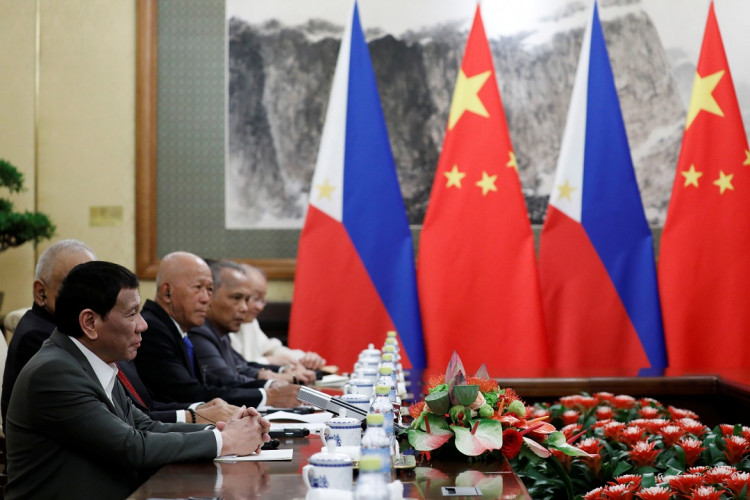China and the Philippines have agreed to enhance maritime communication and manage conflicts through friendly consultations, particularly in the context of the South China Sea disputes. This agreement was reached during the eighth meeting of the China-Philippines Bilateral Consultation Mechanism on the South China Sea, co-chaired by Chinese Assistant Foreign Minister Nong Rong and Philippine Foreign Undersecretary Theresa Lazaro in Shanghai.
The talks, described as frank and in-depth, emphasized that the South China Sea dispute does not define the entirety of bilateral relations between the two nations. This perspective arrives amidst recent confrontations in disputed waters, where both countries have accused each other of provoking conflict. Beijing's sweeping sovereignty claims over almost the entire South China Sea, which overlap with those of several Southeast Asian countries, including the Philippines, remain a central element of these tensions.
During the meeting, both officials underscored the importance of maintaining dialogue to ensure maritime peace and stability. They agreed to manage maritime conflicts and differences through friendly consultations and handle maritime emergencies, particularly around the Second Thomas Shoal, also known in China as Renai Reef. This area has been a hotspot, witnessing heated encounters between Chinese coast guard and maritime militia vessels and Philippine forces.
The commitment to dialogue and cooperation signifies a cautious yet significant step towards managing long-standing maritime disputes. It also reflects both countries' recognition of the importance of a stable and peaceful maritime environment for their respective national interests and regional stability.
However, the diplomatic landscape between China and the Philippines is complicated by other factors, notably the issue of Taiwan. Tensions flared recently when China summoned the Philippine ambassador following Filipino President Ferdinand Marcos Jr's congratulation to Taiwanese President-elect Lai Ching-te. Beijing, which claims Taiwan as part of its territory and opposes official communications with Taipei, expressed strong dissatisfaction and opposition to Marcos's remarks. The Chinese Ministry of Foreign Affairs warned Manila "not to play with fire" and accused the Philippines of violating the "one China" principle and interfering in China's internal affairs.
Despite these tensions, the Philippine Foreign Ministry clarified that President Marcos's message was a gesture of appreciation for Taiwan hosting Filipino workers and successfully conducting democratic processes. The Ministry reaffirmed the Philippines' adherence to the One China Policy, an acknowledgment of China's sensitivity to Taiwan-related issues.
This diplomatic balancing act by the Philippines is reflective of the complex geopolitical dynamics in the region. The Philippines, while managing its territorial disputes with China, also seeks to maintain a pragmatic approach to its interactions with Taiwan, especially given the significant number of Filipino workers on the island.
The recent developments in China-Philippines relations highlight the intricate and multi-layered nature of diplomacy in the Asia-Pacific region. While strides have been made in managing maritime disputes, the Taiwan issue presents an ongoing challenge. As regional powers navigate these sensitive issues, the importance of diplomatic engagement, dialogue, and a nuanced understanding of each other's concerns remains paramount in maintaining regional peace and stability.





